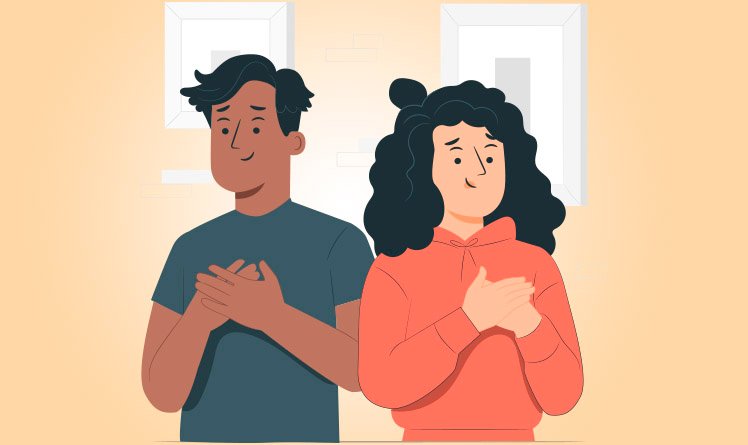Learn how to cultivate gratitude and transform your life

|
Getting your Trinity Audio player ready...
|
Gratitude is a feeling of appreciation and recognition for something we receive or experience. It's a transformative practice that goes beyond words. Thus, it's more than just saying "thank you." It's a mental attitude, a lens through which we see life—and it can transform us from the inside out. More than a simple gesture, it's an ongoing practice of acknowledging and appreciating what we have, even when things aren't perfect.
In this article, we'll explore how you can cultivate gratitude in your daily life and how it directly impacts your emotional well-being, relationships, physical health, and how you deal with life's challenges.
The benefits of cultivating gratitude
Did you know that gratitude has the power to rewire your brain?
Several studies show that by practicing gratitude consistently, there is a strengthening of neural connections associated with positivity, empathy, and emotional resilience. Neuroscience explains: our brains are shaped by our most frequent thought patterns. And, in this context, gratitude acts as mental training to focus on the good—even on cloudy days.
Additionally, practicing gratitude can:
-
Reduce symptoms of anxiety and depression.
-
Increase life satisfaction.
-
Improve self-esteem and optimism.
-
Reduce the tendency towards rumination and negative thinking.
“Gratitude is a simple and powerful tool for promoting emotional well-being and strengthening our mental health.”
Gratitude and deeper human connections
Imagine a relationship where mutual appreciation is part of the routine. In this sense, expressed gratitude—whether through words, gestures, or actions—has the power to strengthen and deepen bonds. Thus, a simple "I appreciate you being here" can heal invisible wounds and build bridges where there was previously distance.
Thus, practicing gratitude in relationships increases empathy and understanding, and reduces conflict. Furthermore, it strengthens emotional connection and creates a more welcoming environment, both at home and at work.
Small gestures like writing a thank-you letter, offering a sincere compliment, or showing appreciation in everyday life can create a positive spiral in relationships. After all, who doesn't like to feel appreciated?
Gratitude in Difficult Times: A New Perspective
The true proof of gratitude's power appears when everything seems to fall apart. And it is precisely in these moments that it becomes most valuable.
When faced with challenges, our brains tend to activate survival mode: anxiety, fear, and negativity take over. However, practicing gratitude doesn't ignore the pain, but offers a healthy counterpoint. It's like finding an anchor in the midst of a storm.
“Gratitude doesn’t erase pain, but it illuminates learning and strengthens emotional resilience.”
In difficult situations, try asking yourself, "Is there anything, no matter how small, that I can be grateful for right now?" Often, simply breathing or having someone nearby is enough to acknowledge it. This small shift in focus can completely change your mental state.
The effects of gratitude on physical and mental health
Anyone who thinks gratitude only affects the emotional realm is mistaken. Studies show that grateful people:
-
They sleep better.
-
They have a lower incidence of cardiovascular diseases.
-
They have lower levels of cortisol (stress hormone).
-
They strengthen the immune system.
Furthermore, regular gratitude practice is associated with the release of dopamine and serotonin—neurotransmitters linked to feelings of well-being. This explains why, even amid chaos, some people manage to maintain serenity: they've trained their brains to seek out the positive.
Furthermore, gratitude can help reduce symptoms of anxiety and depression, as well as help reduce stress.
How to cultivate gratitude in practice
Developing the habit of gratitude doesn't require any complicated rituals. On the contrary, the secret lies in consistency. Below, see practical and effective ways to start today:
Gratitude Journal
Take a few minutes each day to write down three things you're grateful for. It can be something simple: a hot cup of coffee, a loving message, a good night's sleep. Over time, this exercise will refocus your attention on the positive.
Mindfulness with a focus on gratitude
During a meditation, focus your attention on something you're truly grateful for. Allow this sensation to course through your body. This practice combines the benefits of mindfulness with the recognition of what's good.
Intentional expression
Tell someone how much you appreciate their presence, help, or company. As we've said, shared gratitude creates deeper connections and transforms the environment around you.
Reinterpretation of experiences
Take a challenging situation and reflect: “What did I learn from this?” or “What strength did I discover within myself?” This process of resignification is essential to transform pain into growth.
Gratitude in the professional world
Yes, it is possible—and necessary—to bring gratitude into the professional context. This way, when we recognize the efforts of our colleagues, we give feedbacks positive and grateful for the opportunities, we create a more cooperative, light and productive climate.
Companies that foster a culture of gratitude experience greater employee engagement, reduced turnover, and improved communication and organizational climate. Furthermore, these companies foster a greater sense of belonging among their employees.
And the most interesting thing? Showing gratitude requires little. So, a sincere compliment or a simple "thank you for your work" can make a huge difference in someone's day.
“Gratitude at work strengthens organizational culture and improves team results.”
Gratitude and Positive Psychology: The Perfect Marriage
In Positive Psychology, gratitude is one of the character strengths most studied and valued. In this sense, it fits perfectly into the PERMA model (well-being based on Positive Emotions, Engagement, Relationships, Meaning, and Achievement). Therefore, cultivating gratitude strengthens all of these pillars.
Furthermore, its effects go beyond momentary emotion—it profoundly alters how we interpret and react to the world. Combined with mindfulness, the practice of gratitude creates a more present, conscious and resilient state of mind.
Bottom line: gratitude is practice, not theory.
Gratitude is a muscle: the more you practice it, the stronger it becomes. By intentionally incorporating it into your daily life, you begin to change your mental, emotional, and even physical patterns.
It's not about denying your problems or pretending everything is fine, but about consciously choosing to focus on what's valuable in your life. As a result, you'll find greater clarity, lightness, and purpose in your journey.
As author Oliver Sacks would say, "Gratitude is the recognition of the goodness of life." And when we choose this path, even in silence, everything around us begins to blossom.
FAQ – Frequently Asked Questions about Gratitude
1. What is gratitude, according to Positive Psychology?
Gratitude is a positive emotion that involves recognizing and appreciating the good aspects of life, even in the midst of difficulties. It is one of the most powerful forces for emotional well-being.
2. How can gratitude change my brain?
The ongoing practice of gratitude strengthens brain areas linked to empathy, emotional regulation, and pleasure. Over time, this increases positivity and reduces negative mental patterns.
3. Is it possible to feel gratitude even when going through a difficult time?
Yes. Gratitude doesn't ignore pain, but allows us to recognize what's still good. This perspective changes the way we deal with challenges, fostering resilience.
4. What are the simplest exercises to cultivate gratitude?
Gratitude journaling, positive-focus meditation, and expressing gratitude to someone are easy and effective practices to start with.
5. Can gratitude really impact my physical health?
Yes. Studies show that grateful people sleep better, have less stress, and have a lower risk of cardiovascular problems.
Recommended reading:
#umdiasemreclamar: Discover why gratitude can change your life – Davi Lago and Marcelo Galuppo
Image: Freepik

Marcel Castilho is an expert in neuromarketing, neuroscience, mindfulness and positive psychology. In addition to being an advertiser, he also has a Master's degree in NLP – Neurolinguistic Programming. As the owner and founder of the communications agency VeroCom and also of the digital agency Vero Contents, he has been studying human behavior for over 30 years.




